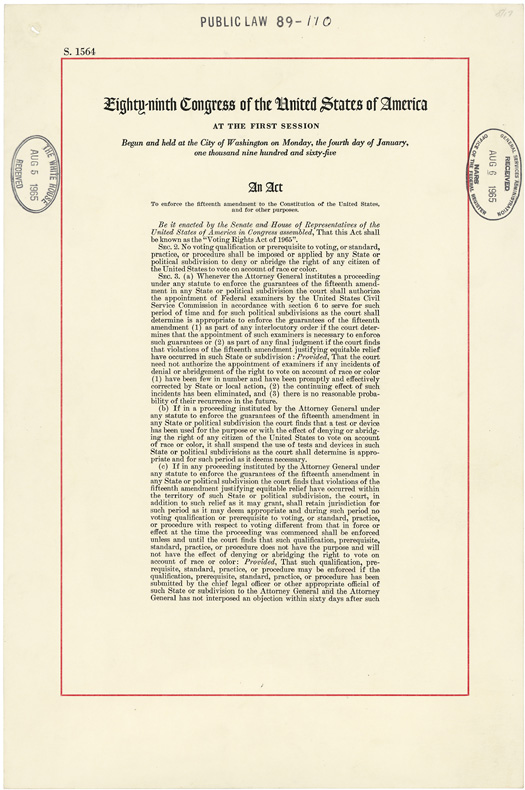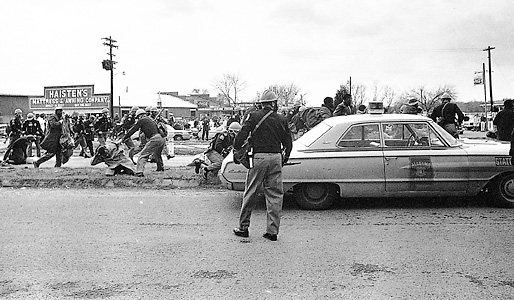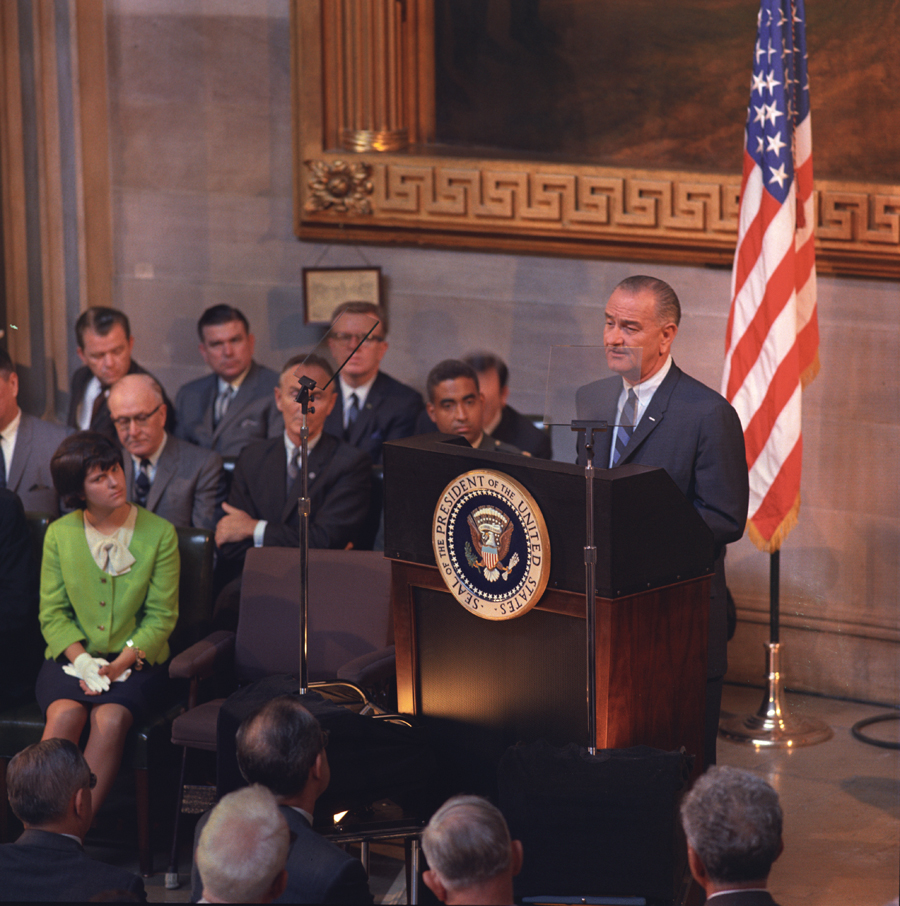Voting Rights Act of 1965 was a law passed to help enforce the 15th Amendment to the Constitution of the United States. That amendment was ratified in 1870. The 15th Amendment states that an American citizen shall not be denied the right to vote because of race or skin color. The Voting Rights Act of 1965 was passed following disputes over voting rights in Alabama, Mississippi, and other Southern states. Protests by local activists in the mid-1900’s influenced the act’s passage. Martin Luther King, Jr., and other civil rights leaders also added pressure for the passage of national legislation.

One hundred years after the American Civil War (1861-1865), many Black citizens still lacked the same access to the political process as white citizens. Poll taxes, literacy tests, and violence and intimidation prevented many Black Americans from voting. In the early 1960’s, civil rights organizations stepped up efforts to register African American voters in Southern states. Such organizations included the National Association for the Advancement of Colored People, the Congress of Racial Equality, the Southern Christian Leadership Conference, and the Student Nonviolent Coordinating Committee. Some white people responded to voter registration efforts with violence and intimidation.
On March 7, 1965, civil rights activists began a march from Selma, Alabama, to Alabama’s state capital in Montgomery. The march sought to draw attention to the restriction of Black people’s voting rights. Local and state authorities attacked the marchers, injuring many. The incident became known as “Bloody Sunday.” Media coverage of the violence generated support for the marchers. Later that month, about 30,000 people, guarded by federal troops, successfully completed the march.

On August 6, President Lyndon B. Johnson signed the Voting Rights Act into law. The act said that “no voting qualification or prerequisite to voting … shall be imposed … to deny or abridge the right of any citizen of the United States to vote on account of race or color.”
The act banned the use of literacy tests as a requirement for voting. It also ordered the U.S. attorney general to begin court action that ended the use of poll taxes as a requirement. In places where voting rights had been unjustly denied, the law provided for federal officials to supervise voter registration. It also forbade major changes in voting laws without the approval of the attorney general. This provision was known as preclearance.
The Voting Rights Act guaranteed the vote to hundreds of thousands of Black Southerners whose rights had been denied. The act also led to a large increase in the number of Black elected officials.
In 2013, in Shelby County v. Holder, the U.S. Supreme Court ruled a key part of the Voting Rights Act unconstitutional. Chief Justice John Roberts wrote that the formula in Section 4 of the law, which determined which areas should be subject to the preclearance requirement, did not reflect improvements in voting conditions in the selected jurisdictions. The court ruled that the provision placed undue burdens on certain state and local governments seeking to update voting laws, in violation of the 10th Amendment to the Constitution. The amendment gives the states any powers the Constitution does not prohibit or specifically grant to the federal government.

